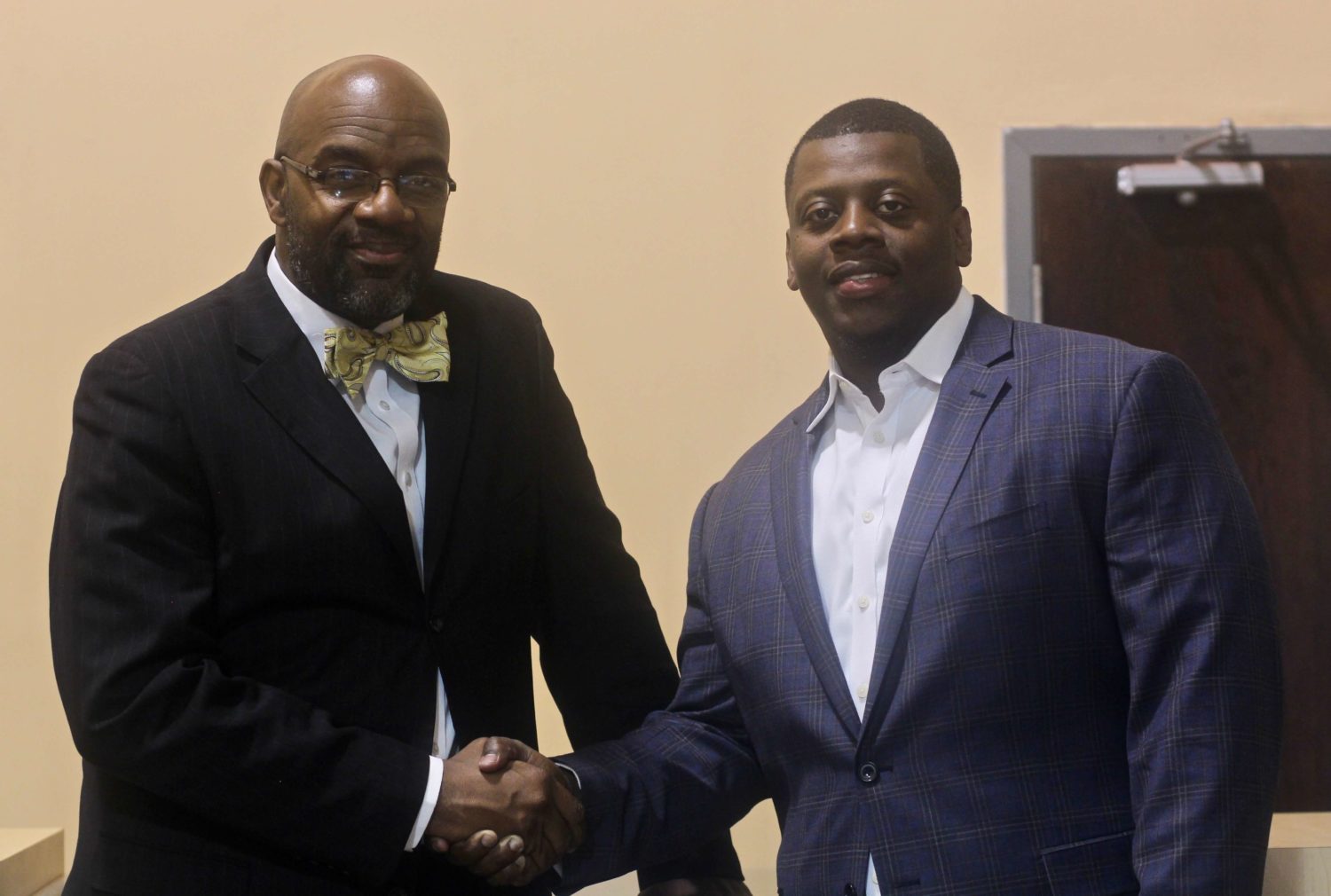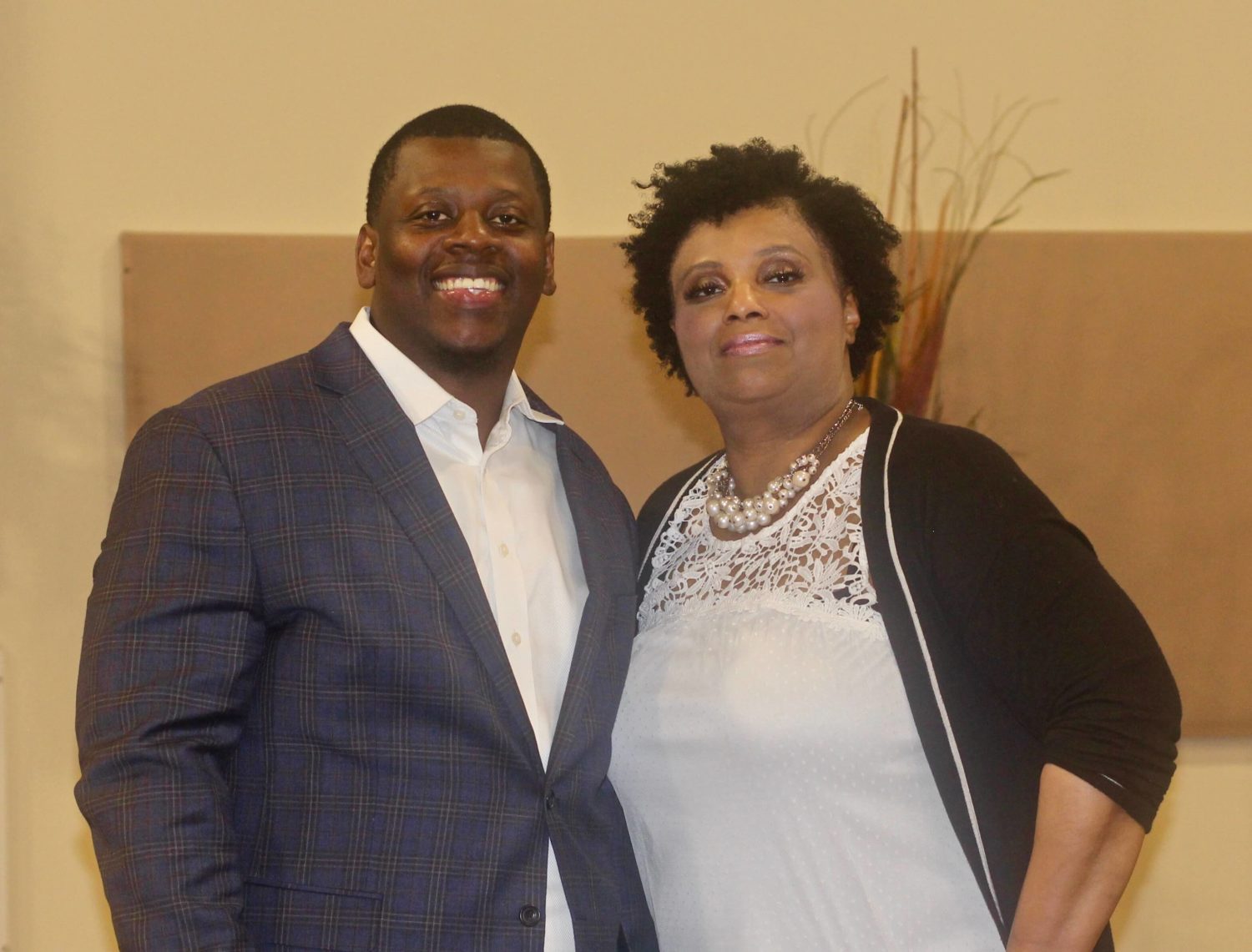
Rev. Dr. Marcus Allen is still new in town.
“I still use the GPS to get around the city,” he says with a laugh. “Some roads I haven’t traveled down there in Madison. Some people I haven’t connected with. And still learning the city.”
Yet in his three years as pastor at Mount Zion Baptist Church, one of Madison’s oldest and most storied African American churches, he’s impressed enough of his colleagues that he’s been named president of the African American Council of Churches in Madison (AACCM).
Before he accepted the responsibility, he spent some time in prayer and consultation with his family and his church.
“I know it’ll be challenging but I think I’m up for the challenge,” he says. “And I think this is the will of God for me and my family. I prayed about it before accepting. I made sure that what I was doing was in line with what God has for my life. And then I know the support system that I have, not only within my household but also within Mt. Zion. I have a strong group of people who support me and who want to see me succeed. And so my church is backing me 100 percent, and then also knowing that the Lord is on our side.”
The vacancy came when Bishop Harold Rayford, pastor at Faith Place Church in Sun Prairie, announced he was leaving Madison to take on a new parish in Columbus, Ohio. Joining him in leadership of the organization are Rev. Karla Garcia of SS Morris African Methodist Episcopal Church as vice president and Rev. Larry Jackson of St. Paul African Methodist Episcopal Church as treasurer.

Allen says the AACCM is an important organization because “the African American Council of Churches pretty much make up a large contingency of African-Americans in the city. I think it’s probably the largest gathering each Sunday morning of African-Americans within the city.”
There’s so much overlap between parishioners of AACCM churches and the overall Black community in Madison that the organization almost can’t help but get involved in the community.
“We want to be more engaged in the community … We want to give out assistance for the community. We want to be more engaged in those efforts and we want to be proactive,” Allen says. “Oftentimes, community only jump together when something happens. So we want to be the voice that before anything should happen within our community. We’re already engaged and already connected in such a way, we won’t have to yell as loud to make our voices heard.”
Allen says he hopes to engage the Black faith community in racial justice and equity work, as well, noting that disparities between White and Black people are worse here than most other places in the nation.
“And those (disparity) numbers, they disturb me, and so in order for us to really engage more we have to engage systems that continue to oppress us,” he says. “But we’ll also have to engage the people. I think the African American Council of Churches has that capability of engaging a wide variety of people in certain areas across this city to make sure we are empowering them.”
He also hopes to lead the AACCM in holding the city’s power structure accountable.
“The community stakeholders tell us all that they want to end homelessness, they want to end poverty, they want to end all this educational gap. But then the (responsibility) is not on the people that are leading the way. That’s how I feel,” he says. “And so how do we engage city staff? How do we engage other 501(c)(3)s. How do we engage the county? How do we engage the state to ensure that what we’re doing is working out for the people who are the most deprived and the most oppressed by systematic things?”
Allen, who grew up in Milwaukee and served tours in Iraq and Afghanistan as a patrol and supply specialist, is no stranger to that work. Last year he called together stakeholders from the cities of Madison and Fitchburg, including mayors’ staff, police and nonprofit leaders, to address a rash of car thefts. Last fall, he was chosen to lead a new mentorship program that will help young adults transition from foster care to the next phases of their lives. He was an outspoken advocate for a middle school girl who was beaten by a teacher at Whitehorse Middle School, and the girl’s mother, who are members of his parish. He has led prayer walks to end gun violence. His efforts earned him a place on Madison365’s Black Power List in 2018.
Through all of that social justice and equity work, though, Allen says it’s important for AACCM to do its work here on the ground but keep its eyes set on higher goals, too.
“If we were to just stay continually doing all the social engagement, just social programming, if we just continue on that, people will forget that our ultimate goal is to lift up Jesus Christ,” he says. “Yes, we are concerned about those who are impoverished, those who are in trouble, we’re concerned about even those mental health. We’re concerned about all the issues that we face from day-to-day, but ultimately we’re concerned about the souls of people. To ensure that they know who we are, we are a Christian organization. So Christ is the head.”
Allen says Madison’s Black churches are special because they can focus on uplifting the gospel together, despite differences in doctrine.
“That’s unique for me coming to this area. We’re able to worship together,” he says. “We have a contingent of pastors who are able to pray with each other, to help mentor, to help build relationships, to whatever it may be and try to meet the needs of each pastor situation within Madison. Even though we have different doctrine we still are able to fellowship together with each other. Most importantly, we involve and engage with each other to handle the affairs and situations that may occur within our communities.”
For Allen, the social justice work and the gospel go hand in hand. He cites the Gospel According to Matthew, in which Jesus says, “when you do it unto the least of these, you’ve done enough for me.”
“It’s the guide of Jesus Christ that transforms communities and transforms lives,” Allen says. “So as the church, as the Black church, we’ve been a community. Now be engaged, we want to be involved. But we also want to be the standard-bearers of the moral compass of the community. That we are the ones that look to Christ and because of our witness, not just by our words, by our actions, we’ll be able to transform all of the injustices and all the disparities that happen within our community.”



